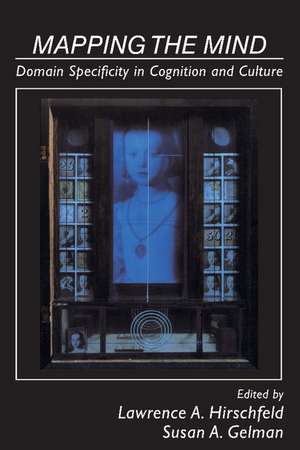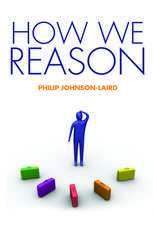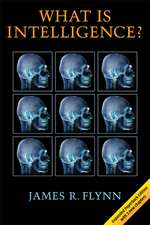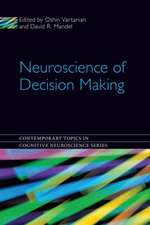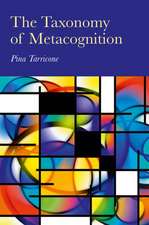Mapping the Mind: Domain Specificity in Cognition and Culture
Editat de Lawrence A. Hirschfeld, Susan A. Gelmanen Limba Engleză Paperback – 28 apr 1994
Preț: 460.25 lei
Nou
Puncte Express: 690
Preț estimativ în valută:
88.07€ • 92.37$ • 73.32£
88.07€ • 92.37$ • 73.32£
Carte tipărită la comandă
Livrare economică 01-15 aprilie
Preluare comenzi: 021 569.72.76
Specificații
ISBN-13: 9780521429931
ISBN-10: 0521429935
Pagini: 532
Ilustrații: 12 b/w illus. 8 tables
Dimensiuni: 153 x 233 x 33 mm
Greutate: 0.82 kg
Ediția:New.
Editura: Cambridge University Press
Colecția Cambridge University Press
Locul publicării:New York, United States
ISBN-10: 0521429935
Pagini: 532
Ilustrații: 12 b/w illus. 8 tables
Dimensiuni: 153 x 233 x 33 mm
Greutate: 0.82 kg
Ediția:New.
Editura: Cambridge University Press
Colecția Cambridge University Press
Locul publicării:New York, United States
Cuprins
Preface; Domain specificity: an introduction Lawrence Hirschfeld and Susan Gelman; Part I. General/Theoretical Approaches: 1. The modularity of thought Dan Sperber; 2. Domain specificity and cultural variation are not inconsistent: lessons from number and music Rochel Gelman and Kimberly Brenneman; Part II. Are Domains Theories?: 3. The theory theory Alison Gopkin and Henry Wellman; 4. Thinking by children and scientists: false analogies and neglected similarities Paul Harris; 5. Core domains versus scientific theories: evidence from systematics and Itzaj-Maya folkbiology Scott Atran; 6. Essences and folk theories of biology Susan Gelman, John Coley and Gail Gottfried; Part III. Origins of Domain Knowledge, Biology and Evolutionary Approaches: 7. The organization of lexical knowledge in the brain: evidence from category- and modality-specific deficits Alfonso Caramazza, Argye Hillis, Elwyn Keek and Michele Miozzo; 8. Origins of domain-specificity: the evolution of functional organization Leda Cosmides and John Tobby; 9. Tomm and Toby: core architecture and domain specificity Alan Leslie; 10. 'Moral belief' form vs. content David Premack; 11. Domain specific knowledge and conceptual change Susan Carey and Elizabeth Spelke; 12. Is the acquisition of social categories based on domain-specific competence or on knowledge transfer? Lawrence Hirschfield; 13. The birth and nurturance of concepts by domains: the origins of concepts of living things Frank Keil; Part IV. Domains Across Cultures and Languages: 14. Cognitive constraints on cultural representation: natural ontologies and religious ideas Pascal Boyer; 15. Universal and culture-specific properties of children's mental models of the earth Stella Vosniadou; 16. Cognitive domains and the structure of the lexicon Anna Wierzbicka; Part V. Implications for Education: 17. 'Teachers' models of children's minds and learning Sidney Strauss and Tamar Shilony; 18. 'Situated rationalism' biological and social preparation for learning Lauren Resnick.
Descriere
A collection of essays introducing the reader to `domain-specificity'.
